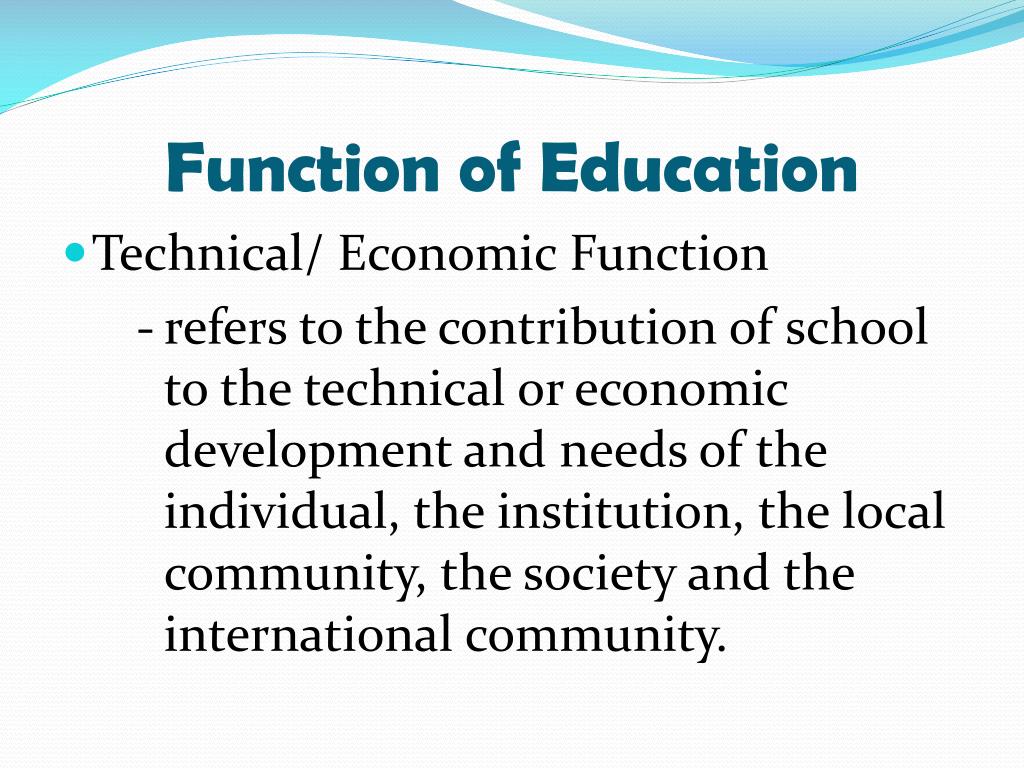Social function of education – Education isn’t just about acquiring knowledge; it’s a powerful force shaping our societies. Its social functions extend far beyond the classroom, impacting everything from community building to global citizenship. This section explores the vital role education plays in fostering a more connected and harmonious world.
Imagine a world where individuals understand and respect diverse perspectives. Education plays a crucial part in achieving this ideal. By exposing individuals to different cultures, beliefs, and viewpoints, education cultivates empathy and understanding, reducing prejudice and promoting tolerance. This ability to connect with others on a deeper level is essential for building strong communities.
Education also empowers individuals to actively participate in shaping their communities. By providing critical thinking skills and a foundation of knowledge, education equips people with the tools necessary to address social issues, contribute to local initiatives, and become engaged citizens. This active participation is vital for fostering a sense of belonging and responsibility within society.
Furthermore, education plays a critical role in promoting social mobility. It opens doors to opportunities for individuals from all backgrounds, regardless of their starting point. By providing access to quality education, we create a more equitable society where everyone has the chance to reach their full potential. This includes fostering economic growth and reducing inequality.
Promoting Social Cohesion
Education is instrumental in creating a sense of shared identity and purpose within a society. By learning about history, culture, and values, individuals develop a stronger connection to their communities and a shared understanding of their place within it. This promotes social cohesion and reduces conflict.
- Shared Values: Education instills shared values and principles, fostering a sense of unity among individuals.
- Understanding Diversity: Exposure to diverse perspectives enriches understanding and acceptance of different cultures.
- Conflict Resolution: Education equips individuals with the tools to resolve conflicts peacefully and constructively.
Enhancing Social Skills
Education goes beyond academics. It also nurtures crucial social skills essential for navigating the complexities of social interaction. These skills are essential for building positive relationships, contributing effectively to teams, and fostering a sense of community.
- Communication Skills: Education enhances communication skills, allowing individuals to express themselves clearly and understand others.
- Collaboration: Educational environments often encourage teamwork and collaboration, strengthening social skills.
- Empathy and Respect: Education fosters empathy and respect for others, promoting understanding and tolerance.
Embracing Global Citizenship: Social Function Of Education
In today’s interconnected world, education plays a vital role in preparing individuals for global citizenship. By fostering awareness of global issues and perspectives, education encourages empathy, understanding, and collaboration on a global scale.
Learning about different cultures, economies, and environmental challenges equips individuals to contribute to global solutions and become active participants in shaping a more just and sustainable world. This understanding is vital for addressing global challenges like climate change and poverty.
This includes learning about international relations, human rights, and environmental stewardship.
In conclusion, the social function of education extends far beyond the classroom. It’s a powerful force that shapes communities, fosters understanding, and prepares individuals for active participation in a globalized world. By investing in education, we invest in a brighter future for all.
Related Websites:

Source: slideserve.com
- UNICEF – (A world leader in child advocacy and development)

